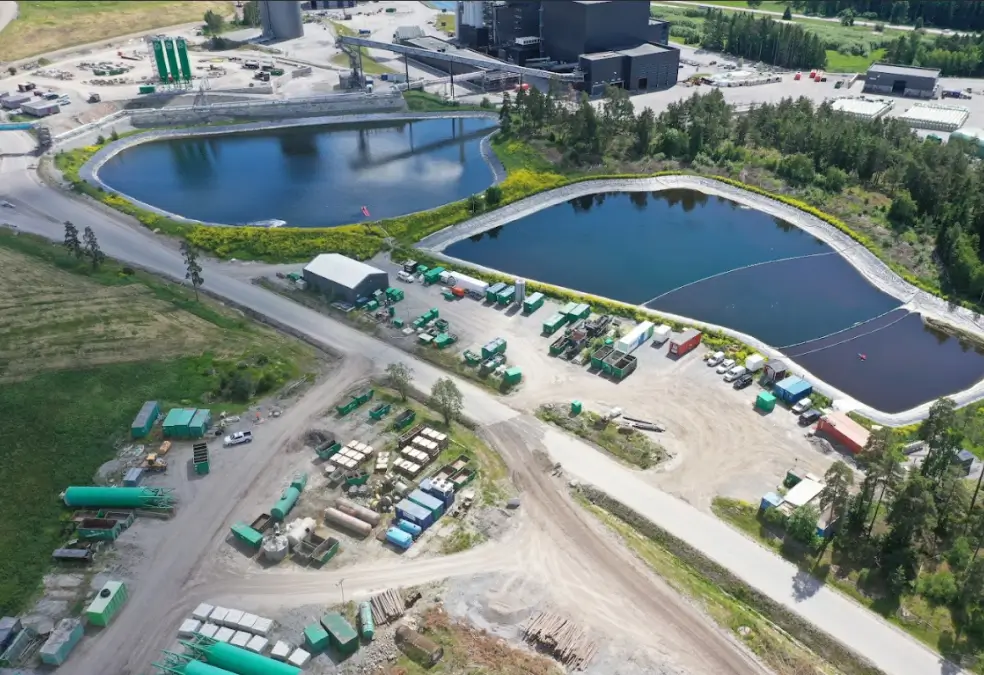Large-scale PFAS treatment at the Högbytorp recycling plant
At the Högbytorp recycling plant in Upplands-Bro, Sweden, almost 50,000 cubic meters of leachate were treated for the removal of PFAS chemicals over a four-month period. Chromafora, an innovative Swedish cleantech company, was behind the treatment project.
The environmental company Ragn-Sells’ Högbytorp recycling plant processes more than 1,700,000 metric tons of waste per year. Among other things, it processes contaminated soil, oily sludge from car washes, organic materials; plastics, paper and wood (PPW) and ash. This waste processing gives rise to leachate which often contains metals, salts and PFAS.
Chromafora was engaged by Ragn-Sells between June and September 2022 to separate at least 40 percent of PFAS11 from the leachate. PFAS11 is the total of 11 common PFAS variants, including PFOS and PFOA, and is used as a reference for the occurrence of PFAS in water.
The system used to treat such major volumes of water in so short a period included charcoal filters and ultrafilters able to process a volume around five times greater than Chromafora’s earlier installations.





